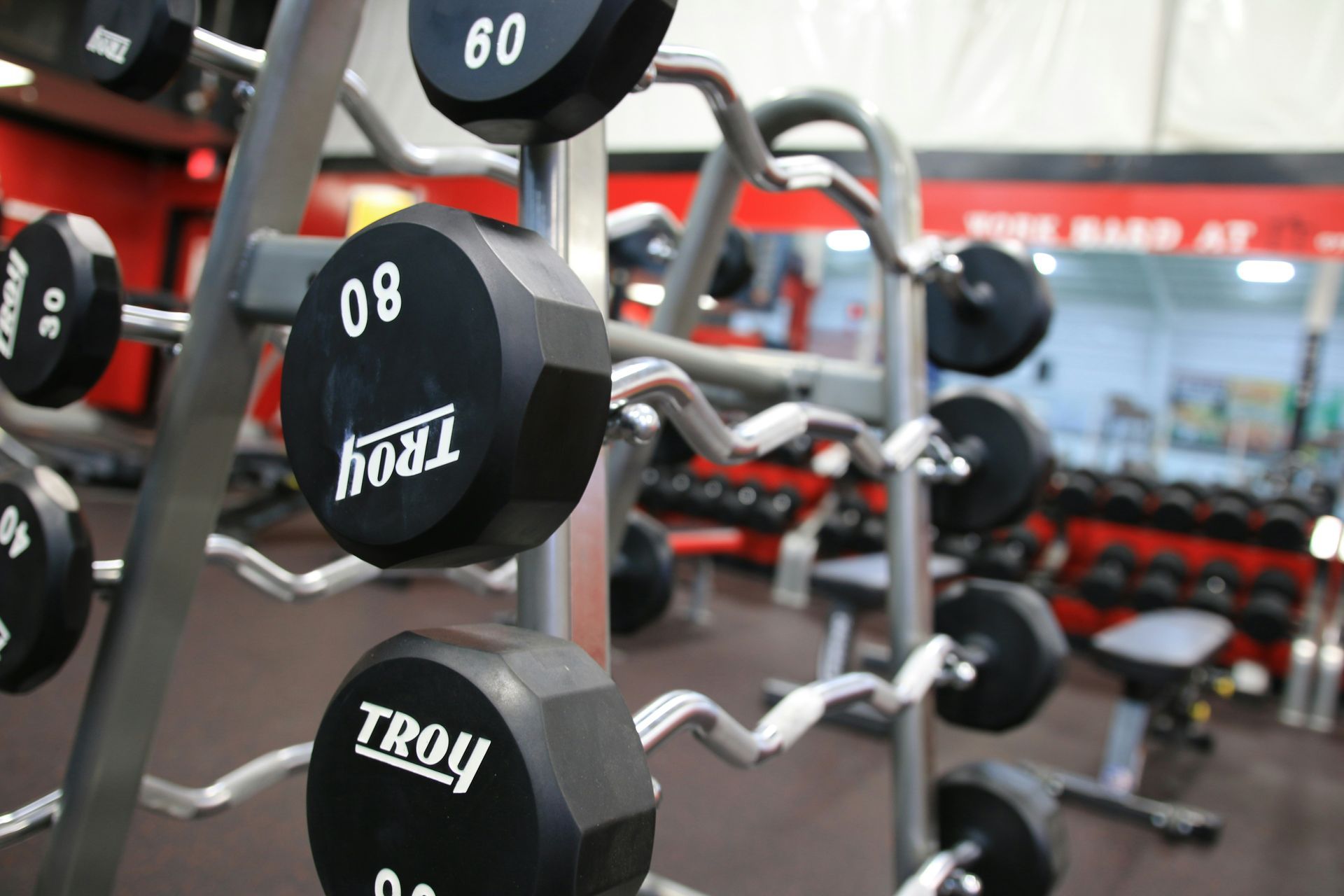AT THE CROSSROADS
At the crossroads of love and science is an art form that offers hope for couples who find themselves stuck in negative patterns of communication. Couples who feel swept up in the undercurrent of these negative patterns, or cycles, can feel disconnected, alone, and frustrated in what is supposed to be the most secure relationship of their lives. The relationship that is designed to fulfill unmet longings and desires can begin to feel more like a source of pain. Let’s face it, the person we most desire to turn to for comfort and connection can sometimes feel more like a stranger, leaving us feeling disconnected, confused, frustrated and sad.
To varying degrees and in different ways, we all get stuck in these styles of relating. The content may change from couple to couple, but research shows the energy of the cycle seems to manifest in a few predictable patterns. Partners either get stuck in a mode of “finding the bad guy,” trying to prove that the discord is the fault of their partner, or, falling into a common pattern of pursue/withdraw.
Couples are finding hope with Emotionally Focused Therapy!
Emotionally Focused Couples Therapy
is a state of the art approach for distressed couples and families. Backed by extensive research, it is considered the “gold standard” as no other approach in couples therapy has been able to match the same level of outcome data. EFT for couples is designed to help couples move out of negative cycles that keep them stuck, and learn how to create positive communication styles. EFT for couples is unique in that, unlike other therapies, the model is experiential, which means the couple will be able to enjoy the new change in their relationship right in session.
For more information on upcoming workshops please go to www.CouplesWorkshopsofFlorida.com or contact me at 407.310.4310

Written by Vicki Kennedy
on Jun 25, 2019
Have a Safety Plan

I’m an amateur photographer (which is to say, I spend money at it rather than make money at it). Photography is all about light. Often, the right light is the difference between just a snapshot and a memorable photo. Coming home from the beach a couple of weeks ago, Debbie and I were treated to a stunning sunset. It was breathtaking. I pulled off the road and stopped to photograph it. Whether a sunrise or sunset, no two are the same. They never disappoint, but something else is equally true: they never last. That stunning light just before the sun rises and just after it sets is there for just a few minutes. Five minutes after I took the photo above, that beautiful light was gone. The most beautiful moments in life don’t wait and they don’t last. We have to notice them. We have to stop and savor them. If we miss them, we can never get them back. And that is especially true with the ones we love. John Gottman discovered in his research that the healthiest couples are careful to see and say the best in their partner and their relationship. They speak love, appreciation and positivity to one another. They seldom leave important, loving words unsaid. Beautiful moments are easy to miss and all too fleeting. Healthy couples never take them for granted. Indeed, they don’t just notice beautiful moments, they make them. This year, on Valentine’s Day, you and your partner have a chance to share and savor two beautiful days together…a weekend not to be missed. Join me and my colleague, Vicki Kennedy at a Hold Me Tight®️ couples retreat in Orlando. Hold Me Tight®️ can bring color and vibrance to your relationship that you never thought possible. Hold Me Tight®️ is truly for couples of any age or stage. You will learn about what draws couples together (and what pushes them apart). You’ll learn how to interrupt conflict and to connect with your partner more deeply than ever. You’ll learn to be that safe place for one another that we all want and need. Hold Me Tight®️ is low key and fun. Couples go at their own pace, no pressure. And, in just two days, many leave feeling more confident and competent than ever, seeing the beauty in their connection that they’ve been missing for too long. Someone said, “Life is not measured in the number of breaths we take, but in the moments that take our breath away.” And the good news is that we can make those moments…beautiful moments too precious to miss. Why not share them with your loved one in Orlando next week? Hold Me Tight®️ in Orlando will be Friday and Saturday, February 13 & 14. All the details are at www.hmtcouplesworkshops.com. It’s truly, a moment not to miss! Learn more about Vicki and Mark . Sign up for hints and helps. Prepare for a transformational experience!
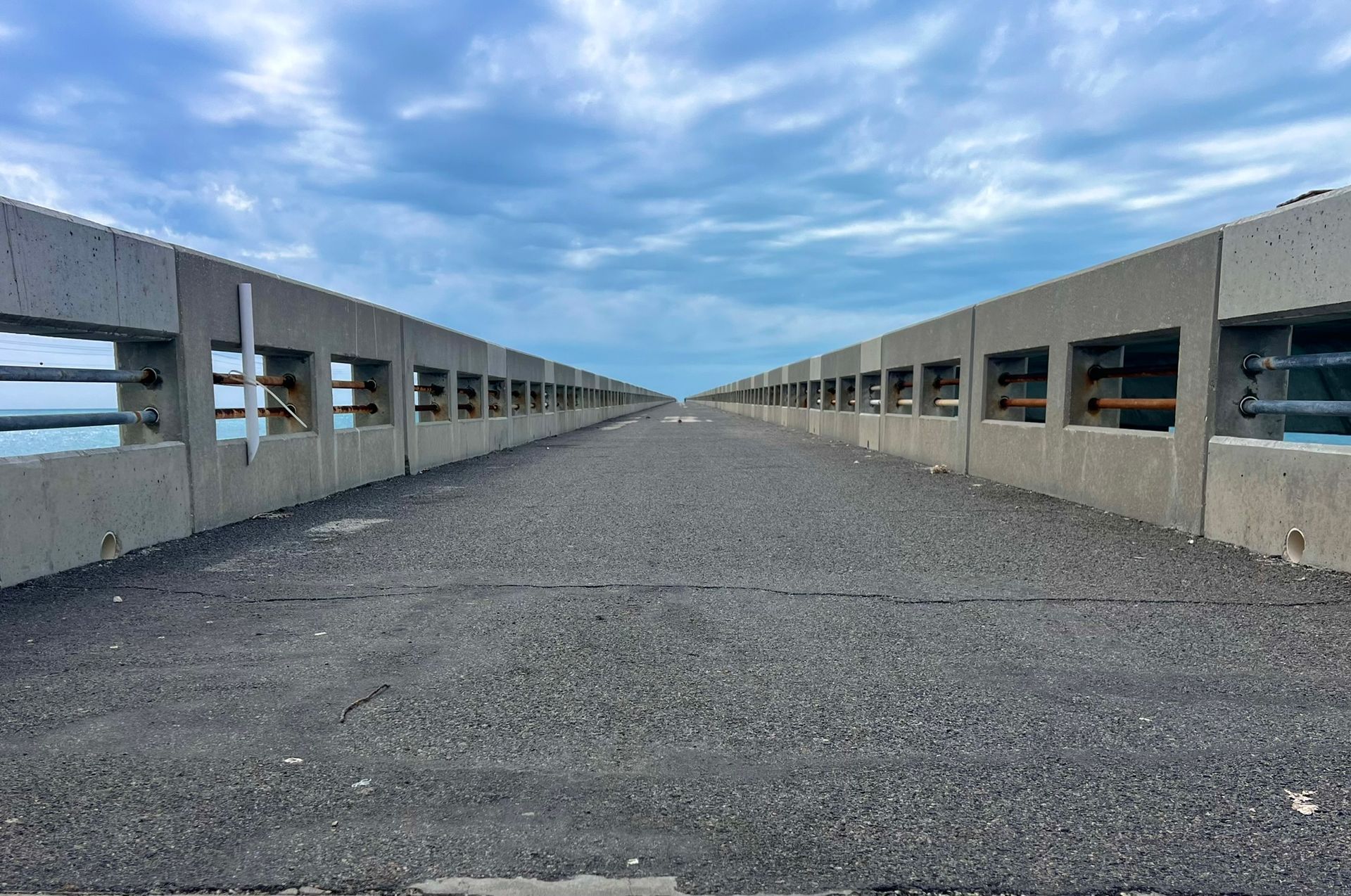
If you’re a social media user, maybe you’ve noticed the recent trend. People are flashing back to 2016 and posting photos and stories about the decade since then. You’d probably agree, a lot has changed in ten years. How are you different today? Any regrets? If you got a do-over, what would you change? Since 2016, I’ve moved to a new state, lived in two different homes, started a new business and added a few more gray hairs. I’ve lost some friends and made some. I’ve celebrated the birth of two more grandchildren and lived through a pandemic. I’ve rejoiced in some changes and regretted others. We can see and learn a lot by looking back; as they say, hindsight is 20/20. But, perhaps the bigger question is: what and where will you be ten years from now? How does the future look? We can’t control everything to come but the life still ahead is at least somewhat in your hands. Your choices are yours. Your priorities, your values will indeed largely chart your course. You can’t change your past, but you can help shape your future. If you’re married or in a committed relationship, where will you and your partner be in ten years? Hopefully, you want your relationship to grow ever stronger…and it absolutely can. Love can be lifelong. But, how will you get there? Merely hoping for it isn’t enough. The old saying goes, “Fail to plan and you plan to fail.” Too many couples are on autopilot. With time, they grow distant and distracted and sadly, begin to believe that their love is dead. Few couples set out to ruin their relationship. Thus, they don’t usually end by intention. More often than not, it’s inattention. Any relationship is either progressing or regressing. Start now creating the relationship you want. Let me suggest progress in three words: Hold Me Tight®️. A two day Hold Me Tight®️ couples workshop can give your relationship a truly bright future. It’s for couples of any age or stage, whether “newlywed or nearly dead.” You may fear that you won’t be a couple in ten years. Hold Me Tight®️ can help. Or you may be good but want to be even better. Hold Me Tight®️ is for you as well. All you need is the “want to.” If you want to understand attachment, the science of love, if you want learn to interrupt those too familiar cycles of conflict that all couples experience but often don't know how to manage, and if you want to create deep connection and safety with the one you love…Hold Me Tight®️ is for you. Hold Me Tight®️ has helped couples the world over. It’s low key and fun; you go at your own pace. In two days, you can find a road map for your next ten years and beyond. Our next Hold Me Tight®️ workshop will be on Valentine’s Day weekend, February 13 and 14 near Orlando, FL. Join me and my colleague, Vicki Kennedy for a transformational weekend. All the details are at www.hmtcouplesworkshops.com. You will either settle for the relationship you’ve got or go for the one you want. Step into your future right now! Learn more about Mark and Vicki Sign up for hints and helps Prepare for a transformational experience

Fans of the iconic TV show Saturday Night Live may remember an episode in 2004 that was iconic for all the wrong reasons. Recording star Ashlee Simpson performed two songs that night. The first went well. The second, not so much. Simpson was sick and losing her voice, but didn’t want to cancel so producers decided at the last minute that she should lip synch while her band played live. (Performers do it more often than you think.) She knew it was risky. She didn’t want to pretend. Against her better judgment, she went on without her voice and, sure enough, the worst happened. When her drummer accidentally played the wrong track, there, on live TV, in front of God and everybody, the audience heard the wrong lyrics and Ashlee Simpson was exposed. She tried to improvise, but with the cat out of the bag, she ran tearfully off stage. In hindsight, she acknowledged, “I should have said, ‘I will not go on.’” In other words, she should have just been forthright. Live and learn. Ashlee Simpson took it hard in the press. Something in us all hates fakery. We don’t like to be tricked. People felt lied to and they took her to task. I say Ashlee Simpson got a raw deal. After all, who are we kidding? Most of us “lip synch” through life in some form or fashion. Honesty may be the best policy, but honesty is risky, sometimes costly. Who of us wants to look frail or faulty, less than perfect? Who of us wants to “look less” to others? We hate showing our weaknesses. And when we pretend or hide, it seldom goes well. At the least, even if we do fool others, we know we’re pretending. At worst, everyone sees that the emperor indeed has no clothes and we are exposed. Terrifying. All the fear notwithstanding, something is liberating about honesty and transparency…and not just liberating, but empowering. It frees us to be our real self. And that is most true with those we love. Intimate relationships thrive on openness and transparency. The world at large may not know the “real” us, but with our loved one, we long to be truly seen and truly known. Yet, it’s there, where the stakes are highest, that we often struggle to show up all the way. As a couples therapist, I see this everyday. My work, in a nutshell, is about helping couples go deeper, to fears, uncertainties, wishes and needs, the stuff we seldom show (and might not even know) and give those a voice. Without the trust and intimacy that openness brings, couples are on autopilot, hiding, pretending, just “lip synching.” In a nutshell, aiming for openness is what we learn and do in a Hold Me Tight®️ couples retreat. We learn why openness matters so much. We learn a little bit about attachment science and a lot about safe connection. We learn to break down conflict cycles and build up vulnerability and empathy. These are the foundation for a strong, lasting love. Hold Me Tight®️ is not therapy. It’s a safe, low key two day group learning experience where couples go at their own pace. No one is pressured or put on the spot. We point you (not push you) to stop lip syncing, to find your own voice and to hear your partner’s as well. Hold Me Tight®️ is for couples of any age or stage. Whether you’re newlywed or nearly dead (or anywhere in between), this is your chance to get closer. Get in on Hold Me Tight®️. Join me and my colleague, Vicki Kennedy in February, 2026 for two days that can change your life. Looking for the perfect Christmas gift? Hold Me Tight®️ is a gift that keeps on giving. Join us February 13 and 14 at Hold Me Tight®️ in Orlando. All the details are at www.hmtcouplesworkshops.com . Learn more about Mark and Vicki . Sign up for hints and helps. Prepare for a transformational experience.

As my family prepared our Thanksgiving dinner last week, then began decorating for the Christmas season (as we do every year) I thought about the rituals that surround us in life. They are everywhere. Rituals are regular practices that connect us and identify us. They tell us who we are, be it in our family, our faith, our community or our country. Be it a wedding, a funeral, a church service, a holiday parade or a political pep rally, rituals give us common ground. Whether they happen weekly, monthly, annually or on specific special occasions (such as weddings or funerals) rituals give our lives a measure of predictability and structure that we all need. Rituals are not necessary for life, but they are so much a part of us that, if they don't happen as we're accustomed to, something feels off. Think of the first holiday after a loved one passed and they were conspicuously missing. We often say, “It’s just not the same without them here.” Rituals are the routines that give life meaning. Couples have rituals too: weddings, for example, declare a couple’s exclusive bond. An anniversary acknowledges that connection each year and, if you miss it, or forget it (or ignore it), something will probably be off. That can even be a sign of trouble. Couples have other, less formal but equally meaningful rituals as well. Sharing a cup of coffee and talking quietly together before starting your day can be a ritual that grounds you, connects you and leaves you “not quite right” on the days that you don’t do it. A quick prayer together with my wife before she heads into the hospital to start her day as a nurse is a simple but special ritual that feels just ours. What rituals do you and your partner share? John Gottman calls them “rituals of connection.” You probably have more than you think. Another very traditional annual couples ritual is coming up soon. It’s Valentine’s Day. Although Valentine’s Day has become very commercial (it’s the second largest card giving holiday behind Christmas) most couples acknowledge their love in at least some way every February 14. And if they don’t, that probably sends a message too. Even if that Valentine’s Day means little to you, your relationship is priceless. Why not create a new ritual of connection this February 14? Candy gets stale. Cards only say so much. Flowers last maybe a week and die. How about something that will last long after the holiday? How about a Hold Me Tight®️ couples weekend retreat? How about two days with your partner and other couples in a safe, low key setting that can totally retool your relationship? Hold Me Tight®️ has a stellar track record teaching couples the secrets that great couples know. Hold Me Tight®️ is based on groundbreaking attachment science and the tenets of Emotionally Focused Therapy, a proven method that has helped countless couples the world over. But, Hold Me Tight®️ is not therapy. It’s a safe learning experience where couples go at their own pace and make the progress they are ready and willing to make. In just two days, you can learn to interrupt endless conflict cycles and create a safer connection that can last a lifetime. If you and your partner are struggling, Hold Me Tight®️ can help. And if you are doing well, Hold Me Tight®️ can take you from good to great. My colleague, Vicki Kennedy and I have been leading Hold Me Tight®️ workshops since 2018. We do at least four a year and our next one will actually be ON Valentine’s Day weekend, 2026, in Orlando. It’s only three months away and the time to get in on it is NOW. See all the details and sign up today at www.hmtcouplesworkshops.com. Learn more about Mark and Vicki Sign up for hints and helps Prepare for a transformational experience.
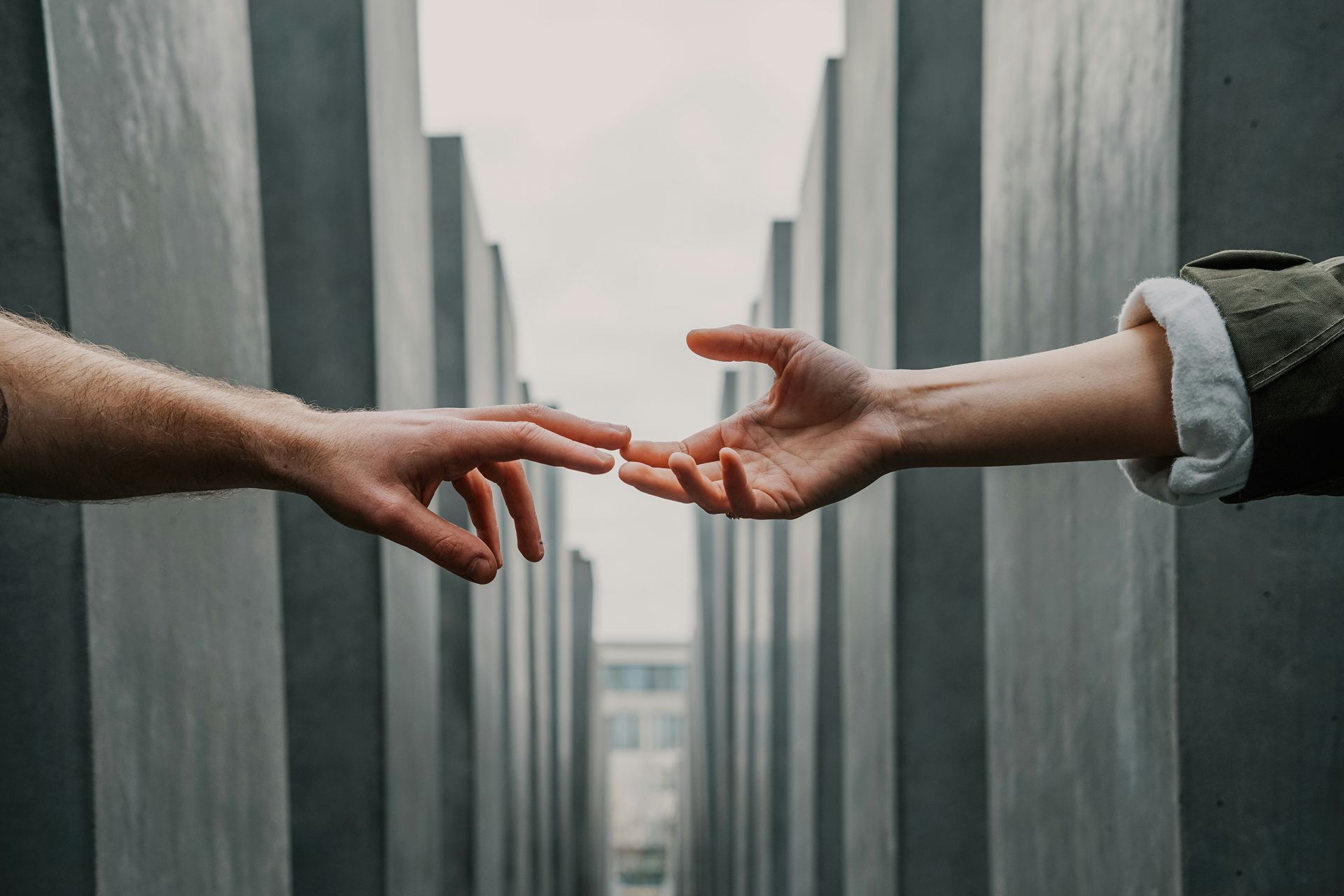
I met a young man recently who impressed me deeply. He was in my home doing some repair work. He was capable, courteous and likable, probably would be successful at about anything he undertook. As he worked and we talked, he mentioned having been in Afghanistan. “You’re a veteran?” I asked. “Yes, two tours,” he replied. He seemed to have come home intact, free from those visible and invisible scars of war that so many combat veterans carry. I asked him, “Do you miss it?” I expected him to say how glad he was to be away from the killing and chaos of combat; but he surprised me. “Yes, I miss it,” he said emphatically. “I miss it everyday.” “Why,” I asked, “would you miss the bombs and the bullets and the ever present shadow of death?” His answer was profound but simple. He said, “Because there, I mattered . I mattered to my unit. I mattered to my superiors. I belonged. I was there for them and they were there for me.” And here at home, all that was missing. He’d left it on the battlefield. That young fellow’s powerful insight underlined something deep and universal. We all need to matter to the people who matter to us. Without it, we feel lost and lonely. Back at home, something was missing for that former soldier; I could see it in his eyes; surely many other vets can relate. But that need to matter isn’t just in military service. Indeed, all of us are born with a need for connection: the need to be seen, heard, valued, to belong, to matter. Connection is part of being human. We are born seeking it and needing it and we never outgrow it. As a couples therapist, I know that when intimate relationships struggle and self-destruct, the core issue is strikingly similar to the young vet I met. It’s a sense of disconnection. Often, couples in distress fear that they don’t matter to the one who matters most to them. They feel alone, sometimes rejected, certainly unloved. Often, they come for therapy hoping I’ll help them “communicate” better or teach them to “fight fair.” But the real missing piece is their disconnection and the pain that comes with it. This is what we learn—and learn to change—in a Hold Me Tight®️ couples retreat. Hold Me Tight®️ is a two day group experience of learning and doing for couples at any age or stage. We learn about the groundbreaking science of attachment (no “psychobabble” here). Love really does make sense. We’ll learn not only what all couples need and seek; we’ll learn how to break cycles of conflict to help you and your partner know that you matter—deeply. Hold Me Tight®️ is low key. No pressure. No one is put on the spot. Couples go at their own pace. After just two days, you will leave with a roadmap for connection that can last a lifetime. My colleague, Vicki Kennedy and I have been leading Hold Me Tight®️ workshops since 2018. Our next in person event will be on Valentine’s Day weekend, February 13 & 14, 2026 near Orlando, FL. All the details are at www.hmtcouplesworkshops.com . Spend two days with your partner and other couples in sunny Florida and make Valentine’s Day really count in the new year. Don’t wait. Sign up today. Space is limited. Learn more about Mark and Vicki . Sign up for hints and helps. Prepare for a transformational experience.

On June 5, 2002, 14 year old Elizabeth Smart was kidnapped in a suburb of Salt Lake City, Utah. Her captors, a mentally ill religious zealot and his wife, did not flee to another continent or a foreign country. Instead, they stayed right in Salt Lake City. They actually went out in public. They made Elizabeth wear a headscarf and a veil, but they visited stores, restaurants, the public library and so forth. Ultimately, after 8 months and a relentless nationwide search, authorities found her only 18 miles from where she was abducted. Elizabeth Smart’s abductors hid her in plain sight. Stories like that are more common than we think. It happens a lot that what we most want to find turns out to be right in front of us—hiding…or hidden…in plain sight right under our noses.
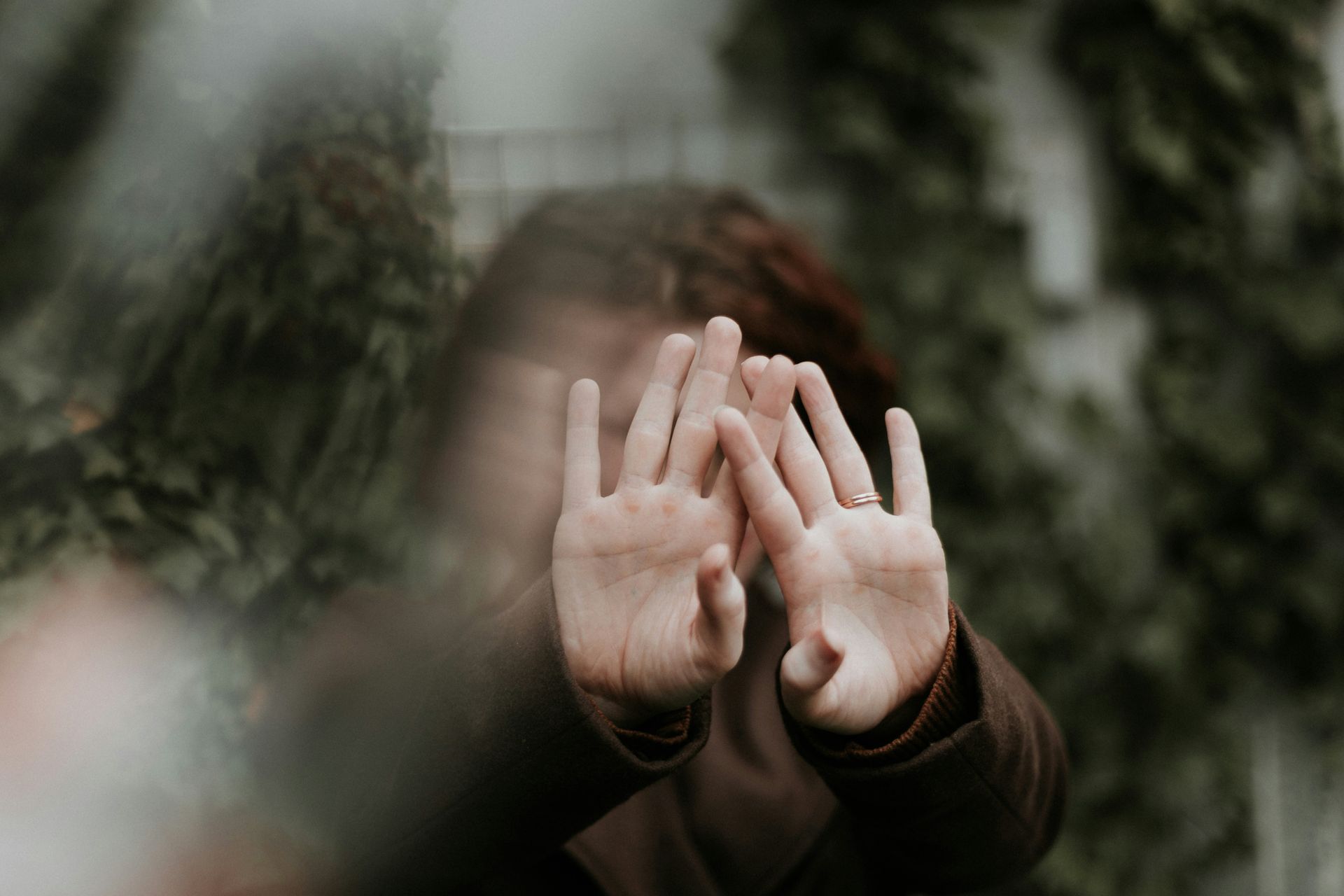
I’ve been counseling couples and leading couples workshops for quite a few years now. Without a doubt, from my experience, Hold Me Tight®️ couples workshops are more powerful and bring faster real, lasting change than any other experience couples can share. Vicki and I lead them at least four times a year because we believe in Hold Me Tight®️ and we know what it can do. We’ve seen couples transform in just two short days. Something is especially powerful about being in a group with other couples on the same journey, sometimes feeling equally stuck or overwhelmed, struggling with the same frustrating patterns, emotions, wishes and mistakes. Couples can empathize, encourage and understand one another at Hold Me Tight®️. Realizing that we’re not alone (and not as messed up as we think) is uniquely comforting.
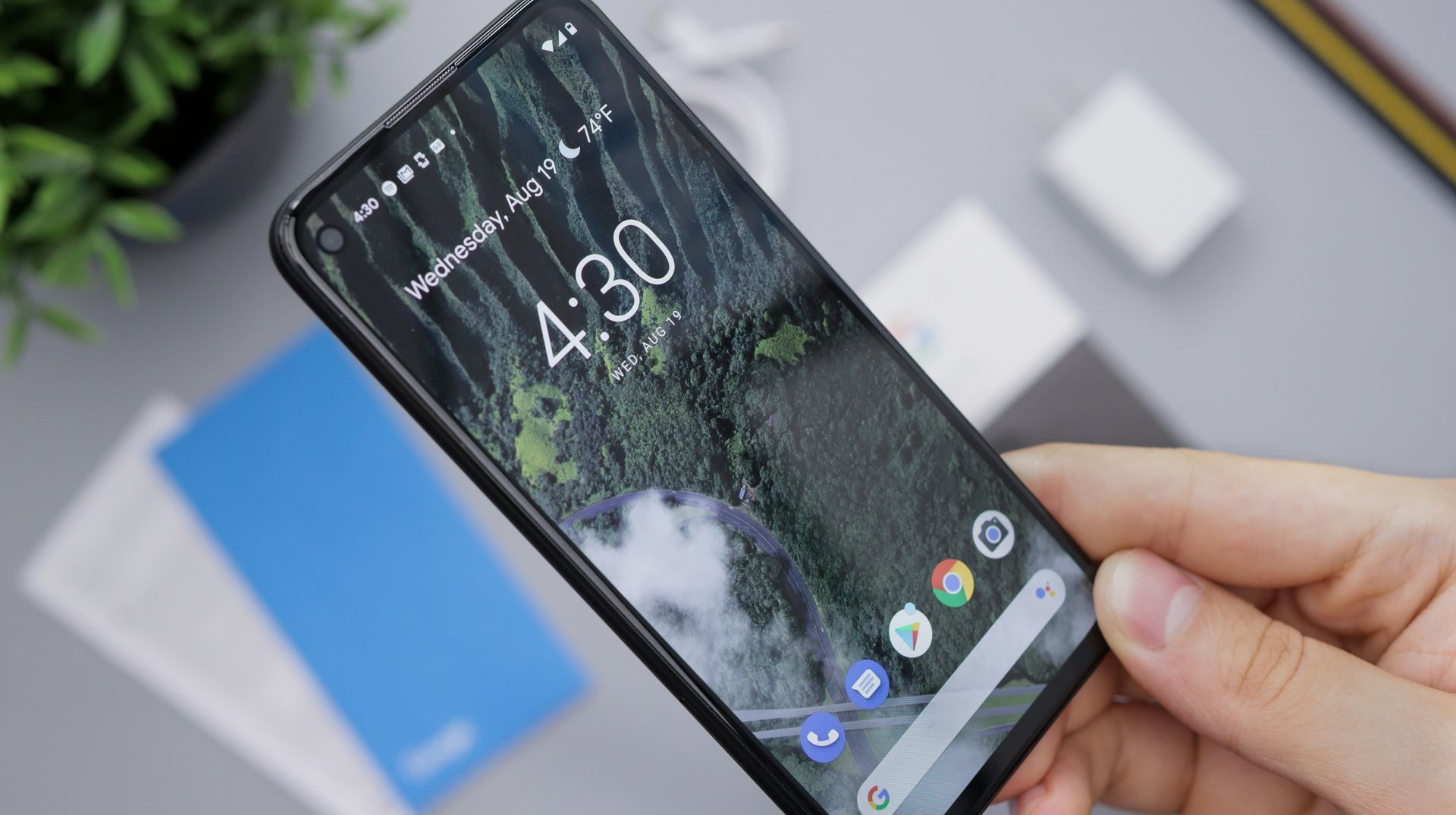
Like over 90% of Americans, I own a smartphone. It’s definitely a love/hate relationship. My phone frequently notifies me of a software update. It’s pretty easy to update my phone, and even more important. But, why update the software? I asked Google and here’s what it told me: “Smartphone software updates are crucial for enhancing security by patching vulnerabilities, improving stability by fixing bugs and glitches, and optimizing performance for a smoother experience.” Sounds good to me. All I know is: updates matter. They keep my phone working well. They are as beneficial as they are necessary. But, it occurs to me that not just smartphones need updates. Smart relationships do too.
